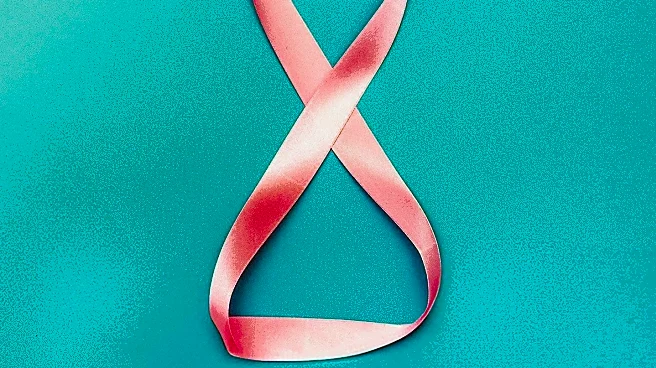What's Happening?
Katie Thurston, featured in the Resiliency Issue 2025, is spotlighted for her optimistic outlook on metastatic breast cancer (MBC). The issue coincides with Breast Cancer Awareness Month and focuses on advancements in diagnosing and treating MBC, the most advanced form of breast cancer. Historically considered a bleak diagnosis, recent developments in treatment and medication have provided patients like Thurston with a more hopeful prognosis. These advancements are further bolstered by news of a potential breast cancer vaccine expected by the end of the decade, showcasing significant scientific progress in the field.
Why It's Important?
The advancements in metastatic breast cancer treatment are crucial as they offer hope to patients facing the most severe form of the disease. With one in eight women affected by breast cancer in their lifetime, these developments could significantly improve survival rates and quality of life for many. The potential vaccine represents a major breakthrough, potentially reducing the incidence of breast cancer and transforming treatment protocols. This progress not only impacts patients but also influences healthcare policies, research funding, and public health strategies aimed at combating cancer.
What's Next?
As the medical community continues to innovate, the focus will likely shift towards the implementation and accessibility of new treatments and vaccines. Stakeholders, including healthcare providers, policymakers, and pharmaceutical companies, may prioritize efforts to ensure these advancements reach patients promptly. Additionally, ongoing research and clinical trials will be essential in refining these treatments and exploring further possibilities in cancer care. Public awareness campaigns during Breast Cancer Awareness Month will play a vital role in educating the public about these new options.
Beyond the Headlines
The ethical implications of these advancements are significant, as they raise questions about equitable access to cutting-edge treatments. Ensuring that all patients, regardless of socioeconomic status, can benefit from these innovations is a challenge that healthcare systems must address. Furthermore, the cultural impact of shifting from a fatalistic view of metastatic breast cancer to one of hope and possibility could alter societal perceptions of the disease, encouraging more proactive health management and support for affected individuals.










